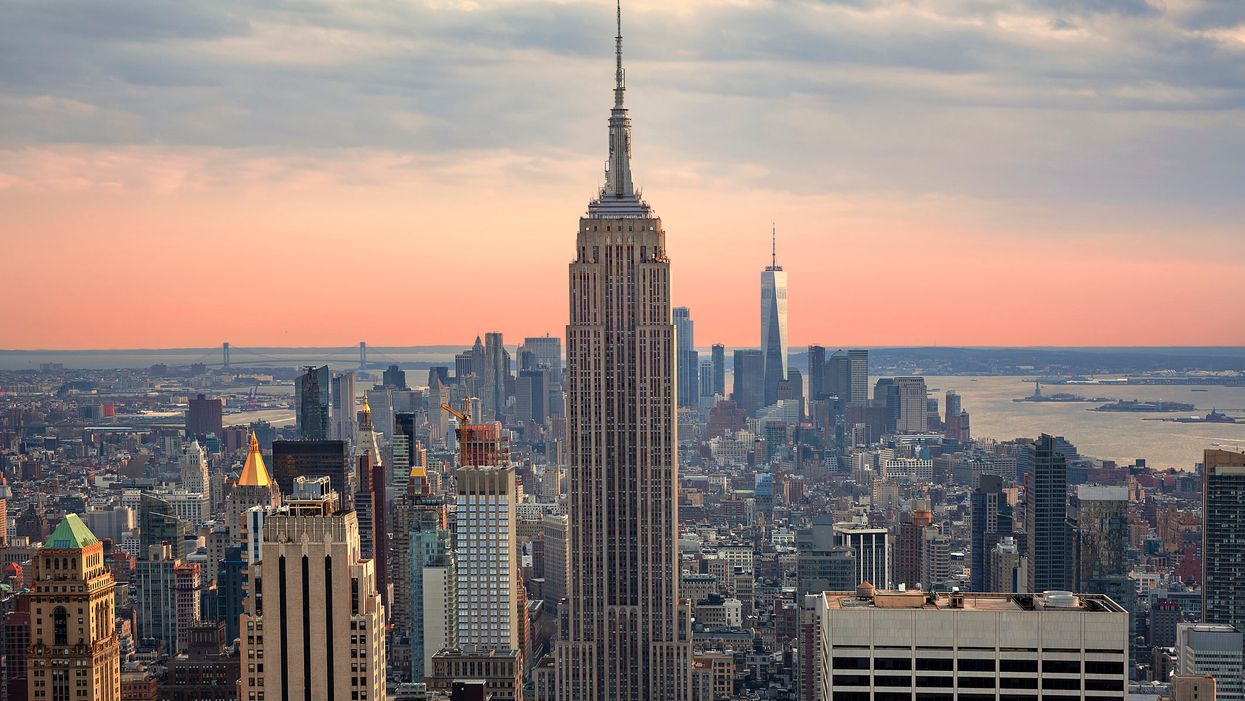Ranked-choice voting just made it big in the biggest town for making it — New York City. And supporters of this way of conducting elections hope to use the victory there to spread it, well, everywhere.
With more than 90 percent of the precincts reporting Wednesday morning, almost three-quarters of voters (73.5 percent) endorsed bringing ranked-choice voting to the nation's biggest city. The new system, which allows people to rank as many as five candidates in order of preference, will be used in primary and special elections beginning with the races in 2021 for mayor, city council and several other municipal offices.
Known as RCV and also the instant-runoff system, ranking candidates has become one of the big election-improvement darlings of the democracy reform movement.
Less sweeping measures for improving governance were on ballots in Maine, Kansas and Denver, and all of them succeeded.
Detractors say the ranked-choice system is confusing and puts too much trust in election officials and their computers, which could be avenues for fraud. But advocates say it provides voters with more viable choices and an incentive for candidates to remain positive in their campaigns — so they might earn at least a second-place vote. It also saves taxpayer money by eliminating the need for costly runoff elections.
And, proponents argue, by providing a truer reflection of the will of voters, the RCV method promotes stronger turnout. That is sorely needed in New York, as was on clear display Tuesday. Fewer than 645,000 votes, or about 11 percent of the city's voting age population, participated in the referendum.
"In approving this simple, intuitive reform, the voters of New York have shown their commitment to consensus and civility over divisiveness and discord," said Kevin Johnson, executive director of Election Reformers Network, which advocates for changing voting systems to boost faith in democracy.
Under the New York version, if no individual candidate has a majority of the first-choice votes, the person receiving the fewest votes will be eliminated and the second choices by those voters are distributed among the other candidates. This process is continued until only two candidates remain. At that point, the candidate with the most votes wins.
Eleven cities in eight states — including San Francisco, St. Paul, Minn., and Portland, Maine — used ranked-choice voting this month to elect local officials. Meanwhile, voters in Easthampton, Mass., also approved ranked-choice voting Tuesday.
Next up for activists are Massachusetts and Alaska, according to FairVote, the most visible national organization pushing ranked-choice voting.
Proponents in Massachusetts are gathering signatures to get a measure on the 2020 ballot that would apply RCV to all state and federal elections, while a judge in Alaska gave the go-ahead last month for supporters to gather signatures for a similar ballot measure.
Bills have been introduced on Capitol Hill to apply RCV to all House and Senate contests, but they stand no chance of enactment by the currently divided Congress.
Besides ranked-choice voting, New Yorkers also approved a slow-the-revolving-door measure that will require elected officials and senior appointed officials to wait two years before appearing before the agencies where they once worked.
The other successful ballot measures that democracy reformers were watching Tuesday:
- Requiring the Denver mayor and other officials to live in the city and city council members to live in their districts. It was approved with 90 percent support.
- Ending the way Kansas adjusts its population counts (not counting military personnel stationed in the state and college students at their campuses) for the purpose of drawing legislative boundaries. It garnered 60 percent support.
- Allowing disabled citizens in Maine to better participate in politics by permitting alternative methods to sign petitions for ballot initiatives. That was embraced by 76 percent.




















Trump & Hegseth gave Mark Kelly a huge 2028 gift